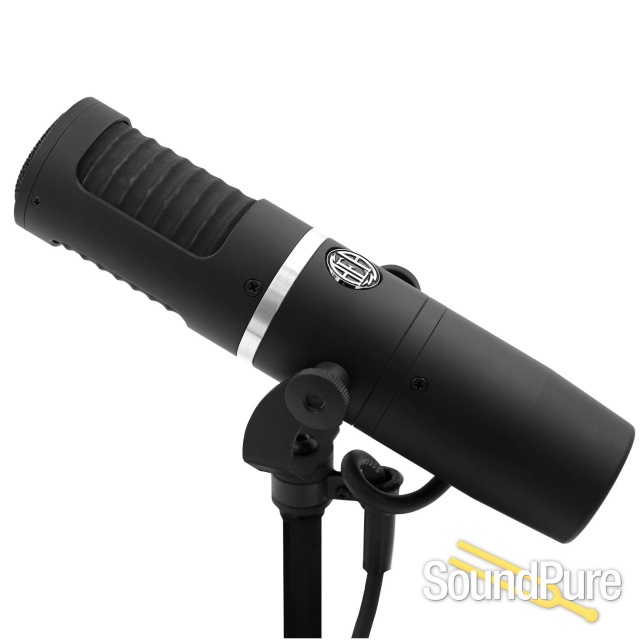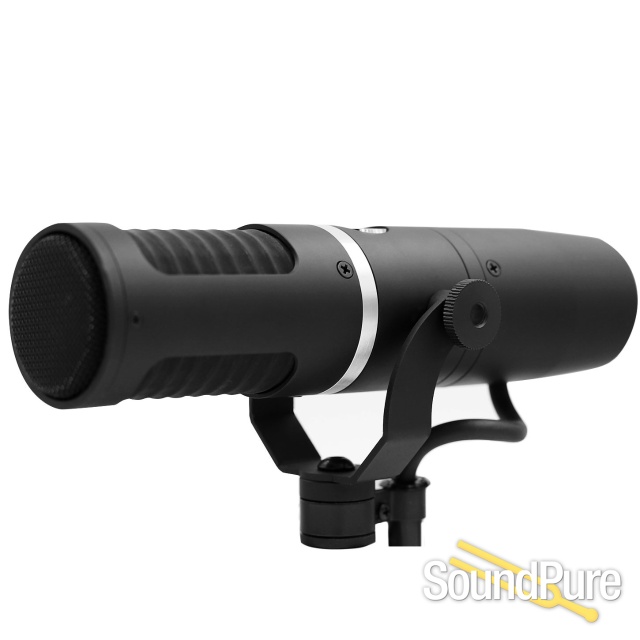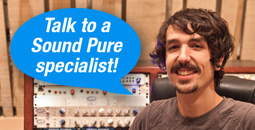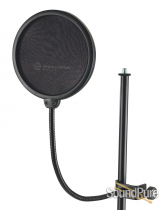-
Call Us Toll Free888-528-9703
-
Local/International (+1)919-682-5552
- Call Us! Toll Free! 888-528-9703
- Local / International (+1) 919-682-5552

AEA KU5a Super Cardioid Ribbon Microphone From AEA
Five years of perfection and testing yields to The KU5A: An active powered supercardioid ribbon perfect for stage and studio in any room
$1,499.00
"Experience the Difference"
 Payments as low as $34/mo.
Payments as low as $34/mo.
Manufacturer's Description from AEA
THE RIBBON FOR ANY ROOM:
The supercardioid KU5A breaks new ground in ribbon technology with its acutely focused directionality that rejects bleed from other instruments, room reflections, and loud ambience in the studio and on stage.
Never before has a ribbon mic delivered as much clarity and breadth of sound in a package so fit for both studio and live use. As a near-field ribbon designed for close range recording, the KU5A delivers the low-end heft and pronounced midrange one expects of AEA ribbons and with moderate, manageable proximity effect. Vocalists can sing directly into the grill of the KU5A, as its interior components are the most protected of any in the AEA lineup.
The KU5A is equipped with active electronics, fit for any preamp in the studio and on the road, as well as an integrated high-pass filter to roll off low end in close range recording applications.
THE SUPERCARDIOID RIBBON
The KU5A’s supercardioid polar pattern captures pure, direct sound while rejecting room tone from behind the mic. This feature prevents excessive monitor and audience bleed when tracking musicians live in one room or on stage. Traditional figure-of-8 ribbons, which distinctly incorporate both direct sound and room sound, rely on sharp nulls to reject unwanted bleed.
The KU5A’s end-address directionality and tight supercardioid pattern allow for effortless positioning on snare, toms, and other instruments that may be difficult to access. Signal bleed captured by dynamic mics and condensers often sounds harsh and brittle due to top-end frequencies. The minimal bleed captured by the KU5A sounds more natural as a result of its smooth top end and coheres well in a mix.
ACTIVE AND FLEXIBLE
The active KU5A comes complete with a custom transformer and JFET electronics. It features the same custom transformer as the A440, R84A, and NUVO ribbon mics, providing greater output, less audible noise, and stable impedance. This allows for consistent frequency response and greater flexibility with different preamps, including those within audio interfaces. The boosted output of the KU5A is beneficial when recording quiet sources like vocals and soft acoustic guitars, and the active circuitry prevents noise interference. The KU5A operates with standard 48-volt phantom power.

About Manufacturer
Wes Dooley's longtime passion for audio has infused his company, Audio Engineering Associates (AEA), with a well balanced blend of creativity and technical expertise for forty years. At the core of AEA is a genuine interest in the art and science of audio. From areas as diverse as forensic audio and microphone design, Wes' passion for audio has led him all over the world, from recording experiences in Europe, Africa, and New Zealand, to the courtrooms of Los Angeles as a forensic audio and video expert witness. Such experiences have led Wes to design products which help resolve problems commonly encountered by recording engineers. His portable recording tools including, multi-channel microphone arrays, MS stereo processors, stereo phase displays and very tall microphone stands, have all made on-site recording far more feasible. Despite his contributions to on-location recording, Wes is best known for his pursuit of excellence in ribbon microphone technology. After two decades of representing and servicing the BBC 4038 in the United States, he began to experiment with his own ribbon microphones. During the last decade Wes became aware of the increasing scarcity of R44's and other ribbon microphones. In 1998, responding to this need, Wes re-introduced the 44 much to the thrill of many in the recording industry. Les Paul told Wes that AEA's R44 is his favorite microphone and engineer/producers such as Bruce Swedien, Kevin Bacon, and Shawn Murphy routinely use AEA's R44. Even without such critical acclaim the numbers speak for themselves. Over half of the movies scored in Los Angeles have a 44 somewhere on the scoring stage. Building off of his successful reintroduction of the R44, in 2002 Wes designed and began producing an original ribbon mic, the AEA R84. His groundbreaking work with ribbon microphones helped him to secure the Audio Engineering Society (AES) Silver Medal Award in the fall of 2003. This award, established by the AES in 1971, in honor of audio pioneers Alexander Graham Bell, Emile Berliner, and Thomas A. Edison, is given in recognition of outstanding development or achievement in the field of audio engineering. Wes has also co-authored two AES Journal articles about stereo microphone techniques, chaired workshops on mic techniques and mixing strategies for compatible multiple releases for cinema, broadcast and home video, and has presented section meetings on stereo techniques and forensic audio. He is involved with AES standards work and currently serves on the SC-03-12 Working Group on Forensic Audio and SC-04-04 Working Group on Microphone Measurement and Characterization.
Specifications
- Microphone Type:Active Ribbon
- Ribbon Type:1.8-micron Aluminum, .05" x 1.175"
- Mono/Stereo:Mono
- Polar Pattern:Supercardioid
- Frequency Response:20Hz-16kHz
- Max SPL:140dB SPL
- Output Impedance:92 ohms
- Connector:XLR
- Power Source:48V phantom power
- Weight:2 lbs.
- Manufacturer Part Number:KU5A














